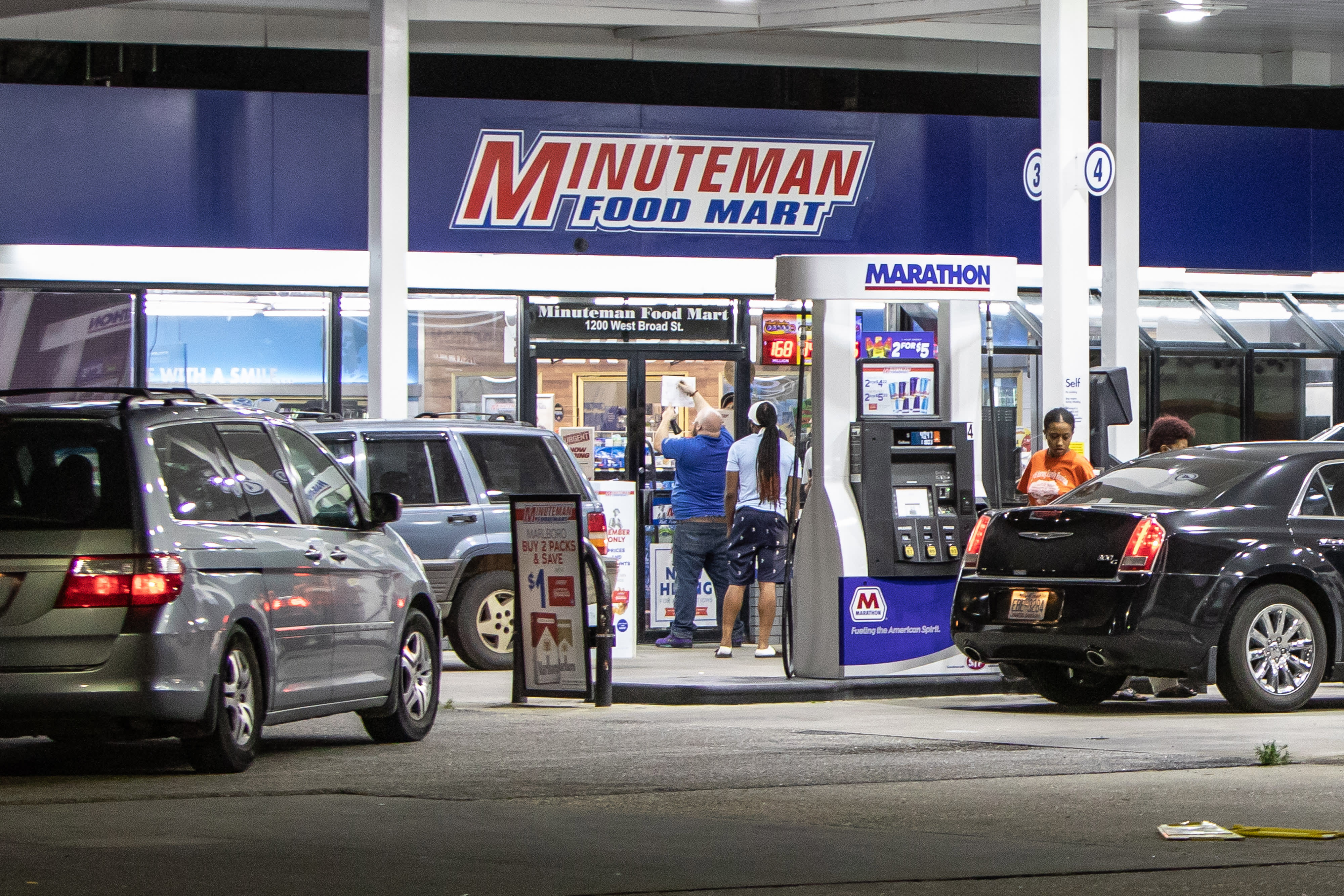
A store clerk posts a sign at a Marathon gas station in Elizabethtown, North Carolina, U.S., on Monday, May 10, 2021.
Andrew Sherman | Bloomberg | Getty Images
Gas prices could rise to their highest level since 2014 as portions of the Colonial Pipeline remain shutdown.
The national average for a gallon of gas stood at $2.985 on Tuesday, up 6 cents over the last week. A gain of 3 more cents would take the national average to its highest level since November 2014.
“AAA forecasts gas prices to climb this week in reaction to the shutdown of the Colonial Pipeline,” the road travel organization said in a statement. “The longer the pipeline is offline, the larger the impact on the east coast.”
Colonial Pipeline, which connects the Gulf Coast to the Northeast, transports roughly 45% of the East Coast’s fuel in a network stretching 5,500 miles. The system was taken offline Friday after the company fell victim to a ransomware cyberattack.
On Monday afternoon, the company said it was aiming to have all of its operations restored by the end of the week. Later Monday, it said one of its mainlines was open again but on a limited basis and under manual operation. The company’s website was down on Tuesday morning, so it was unclear if there were any overnight developments.
“This shutdown will have implications on both gasoline supply and prices, but the impact will vary regionally,” said AAA spokesperson Jeanette McGee, noting that Mississippi, Tennessee and the Eastern Seaboard from Georgia into Delaware could experience limited availability and price increases.
However, traders note that tanks are sufficiently supplied to meet demand, and that there are alternatives should the pipeline remain offline for an extended period. Additionally, the Department of Transportation declared a state of emergency across 17 states and the District of Columbia on Sunday evening, easing some of the restrictions around tanker trucks transporting gasoline and other fuels.
Drivers filling up their tanks in anticipation of a shortage could press the system, and some gas stations in the country are beginning to run out of fuel.
“Motorists are well advised not to strain the system by filling up or beating price adjustments, for they may make the problem much more severe if they do strain the system by filling their tanks, and prolong any outages by doing so,” said Patrick De Haan, head of petroleum analysis at GasBuddy.
Become a smarter investor with CNBC Pro.
Get stock picks, analyst calls, exclusive interviews and access to CNBC TV.
Sign up to start a free trial today



